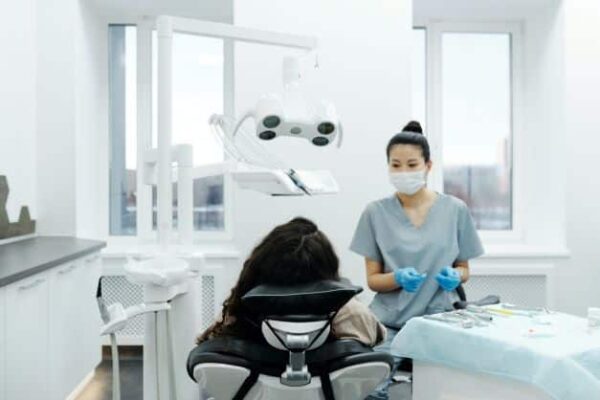Unconsciously Clenching Jaw: Causes and Treatment Options
Do you wake up with sore facial muscles? There is a high chance that you are unconsciously clenching your jaws during sleep. While not uncommon, jaw clenching can have serious consequences for your oral health. It can cause damage to your teeth or lead to long-term problems, such as TMJ disorder. Discover the causes and treatment options if you suspect that you might be unconsciously clenching your jaws.
Unconsciously Clenching Jaw Causes
What causes clenching the jaws unconsciously? Experts cannot pinpoint the exact cause of teeth grinding but there are theories that it relates to increased anxiety and stress. Therefore, it is more common in adults, although it could also affect children.
Dentists use various methods of exclusion to determine the potential cause of teeth clenching. For example, they will ask about your medical history, medications you are taking, and other lifestyle habits. They will also perform a dental exam to determine the extent of the problem and to identify any problems in your dental structure that could cause jaw clenching. The goal is to exclude other potential diagnoses and to determine if it is due to a TMJ disorder or some other dental problem.
Aside from TMJ disorder, other potential causes of unconscious jaw clenching include misaligned teeth, excessive chewing, and rheumatoid arthritis.
Unconsciously Clenching Jaw Treatment
Treatment is not always needed for jaw clenching. Many outgrow it, especially when it affects you as a kid. But if the problem is persistent or it develops in severity over time, it is important to seek dental treatment. The exact treatment will depend on the specific symptoms that you are experiencing.
The following are the most common treatment options for unconsciously clenching jaw:
- Mouth guards – This oral device creates a separation for your teeth to avoid causing damage and wear when you clench your teeth or jaws. A mouth guard is made of soft materials or hard acrylic. It is worn over the upper or lower teeth.
- Dental correction – This treatment procedure involves changing the chewing surfaces of your teeth, especially if they’ve gotten more sensitive over time due to clenching. A dental crown is worn over the affected teeth.
- Stress Reduction – Since stress is cited as one of the common causes of unconsciously clenching t
he jaws, stress reduction and relaxation techniques are recommended to combat the negative effects of teeth clenching.
The Canadian Sleep Society reports that up to 8% of Canadian adults suffer from clenching. Most of these take place during sleep. They also recommended lifestyle modifications to prevent this problem, such as:
- Engaging in stress-relieving activities, such as listening to music or exercising, to help reduce the tendency of jaw clenching.
- Limiting your caffeine or alcohol intake before bed.
- Paying regular dental visits so your dentist can assess your oral health condition and address any problems as soon as they arise.
When to See a Doctor About Unconsciously Clenching Jaw?
If you experience pain that is persistent and gradually progressing due to unconsciously clenching your jaws, it’s important to consult with a dentist or doctor. You must do so if you clench your jaws during sleep. The latter is considered a sleep disorder and it can have serious consequences for your oral or sleep health over time.
A health professional can diagnose the problem and recommend the best treatment to ease the symptoms. They can also recommend further testing to rule out more serious sleep disorders, such as obstructive sleep apnea.

